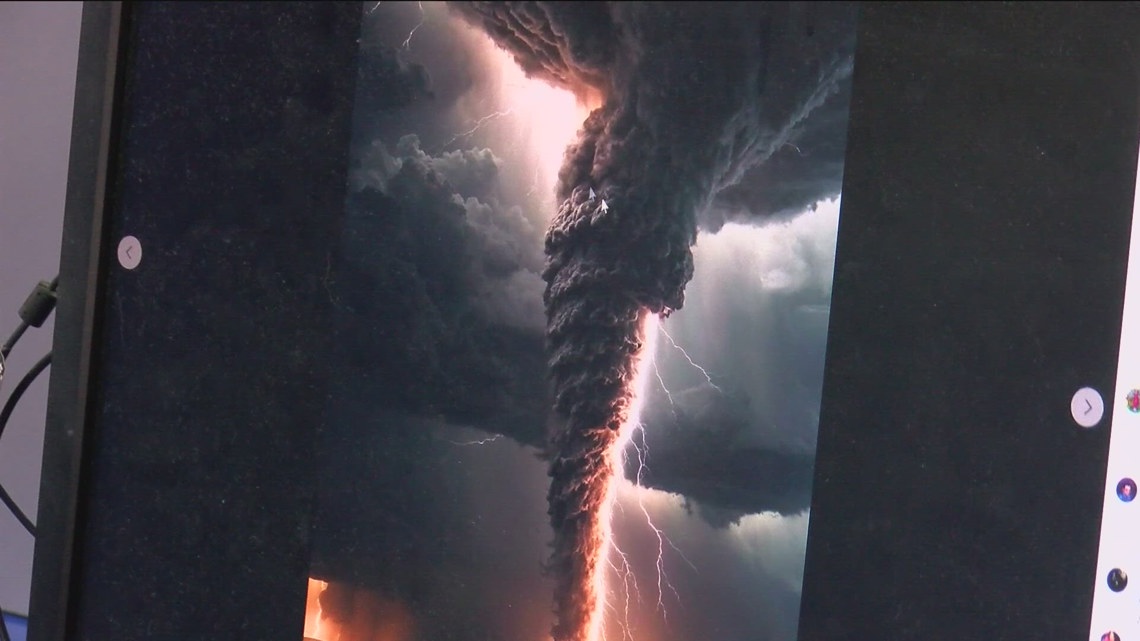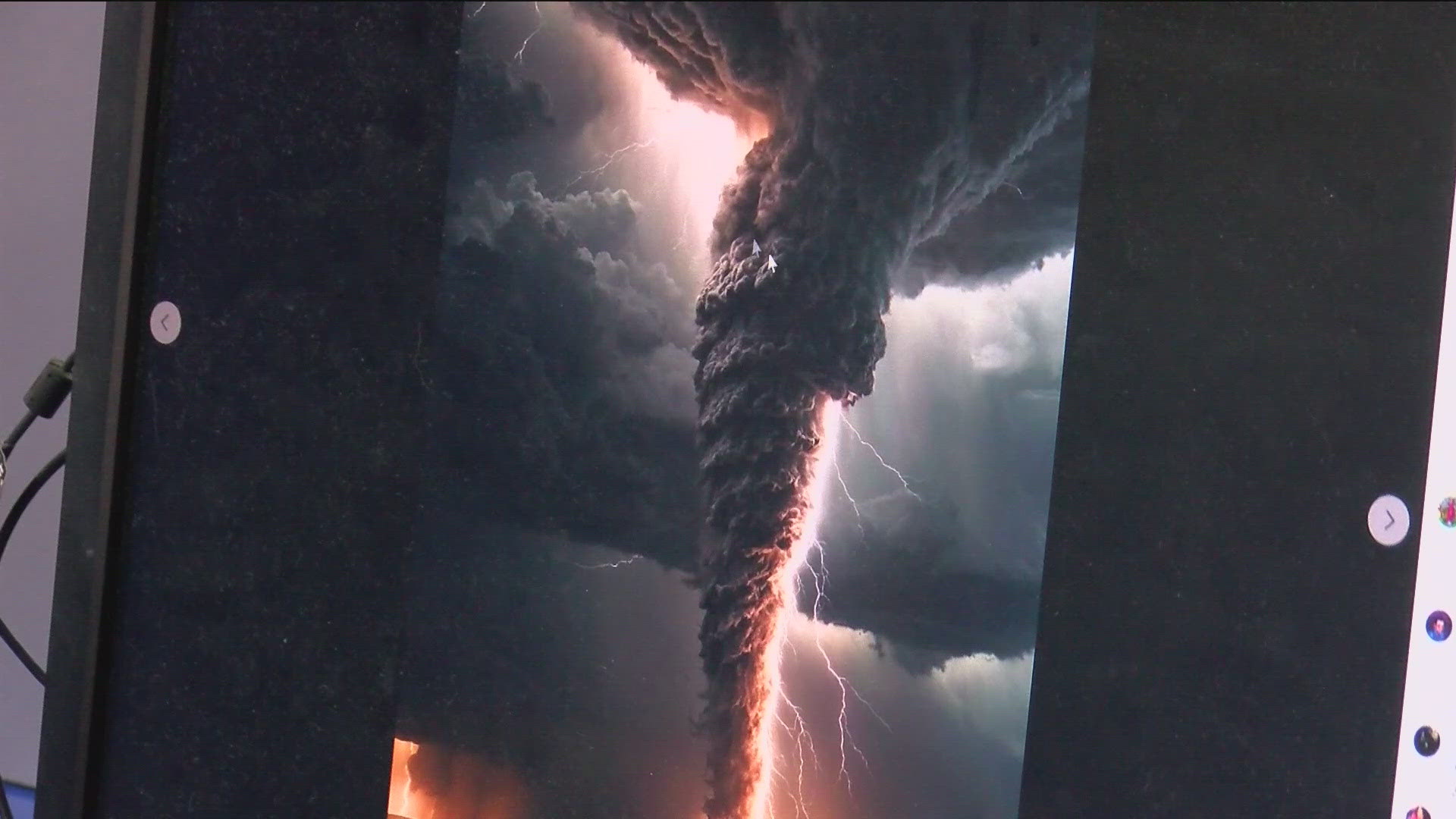TOLEDO, Ohio — Don't believe everything you see online. That saying gets more true each day with the advancements in artificial intelligence.
As deepfakes of politicians and celebrities become more common, it can be hard to know if what you're seeing and hearing is legit, whether it be videos of celebrities, audio of politicians or pictures of weather phenomena.
"We have to be on our toes at all times," said WTOL 11 Chief Meteorologist Chris Vickers. "I think fake weather pictures go back further than AI."


Hafiz Malik, a professor of electrical and computer engineering at the University of Michigan Dearborn campus, said AI can mix fact and fiction.
"If you look at the imagery, imagery is realistic. There's no tampering going on there. But the audios are the ones that are manipulated. Some are real, majority are deepfake," he said.
It can be as simple as finding websites that offer AI services, paying for a subscription and reading a prompt on video.
The ease of access is an issue. The ease of causing deception or panic using the images and voices of politicians, celebrities or other public figures, even more so.
"We use biometrics for security, voice access, face recognition," Malik said. It creates a challenge for security."
How can you spot a fake?
"Telltale signs typically you can see out-of-sync audio and the lips. Are you seeing real hand movements? This kind of thing, at least as of today, is not easy to duplicate for deepfake video generators," Malik said.
If you see something that worries you, verify the information by looking at trustworthy news outlets.
AI may be developing fast, but so are the ways to detect it, Malik said.
Above all, using your eyes, ears and critical thinking can help parse out the frauds.
In some cases, the public's safety can be on the line.
Vickers said the WTOL 11 Weather Team rigorously verifies reports of severe weather.
"When we get reports or truth of an event happening, say it's a tornado, that could come in the form of pictures or confirmed storm spotters, we approach the situation differently," he said. "We send a higher level of urgency to that so if there is a generated image that is not authentic or AI or fake in some capacity, it could mean personal safety is on the line."
Some states, like Colorado, are looking to regulate the technology, but nationwide regulations have not been established. However, the European Union has implemented the AI Act, restricting artificial intelligence.

